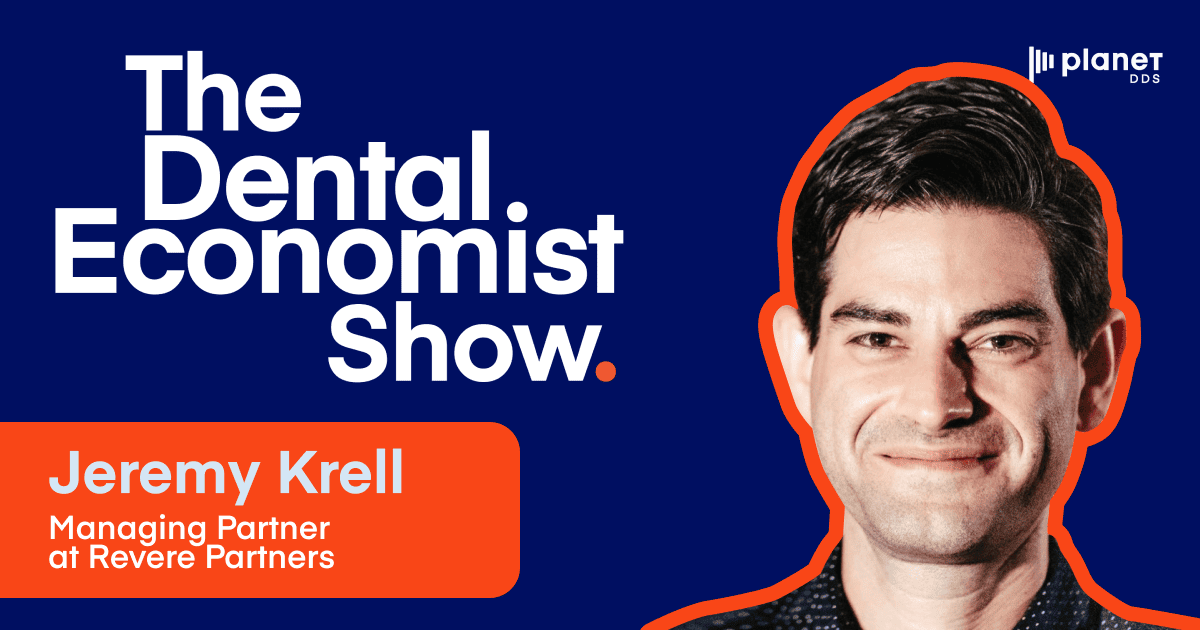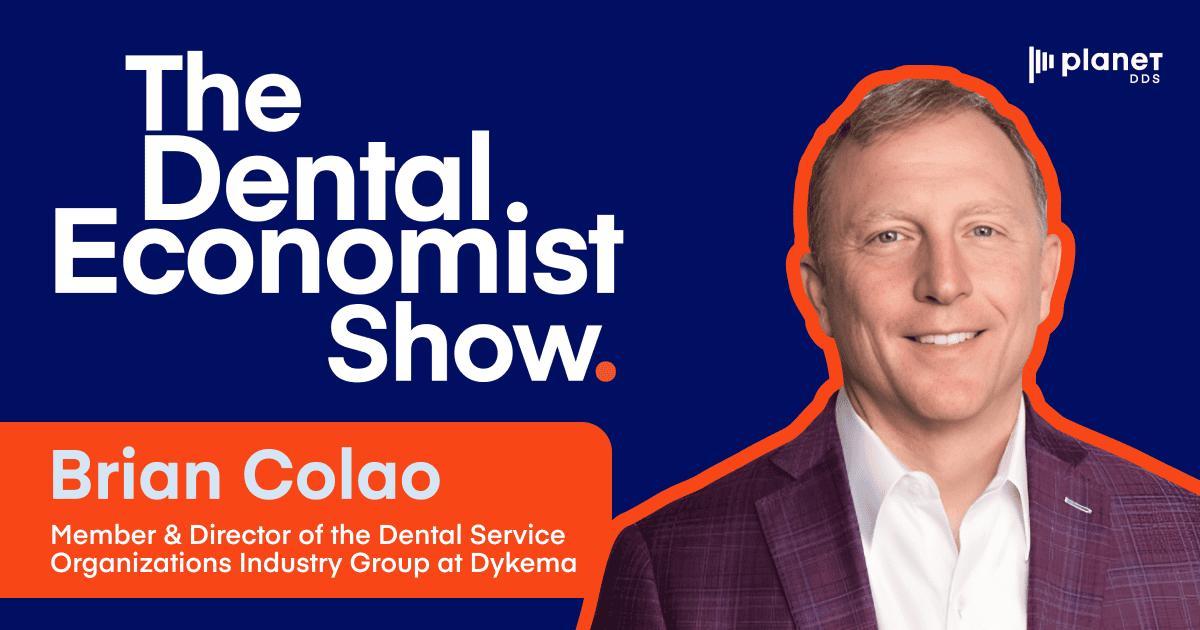Jeremy Krell on Dental Innovation and Investment

In this episode of The Dental Economist Show, host CRO Mike Huffaker of Planet DDS sits down with Jeremy Krell, the managing partner of Revere Partners. Join them as they discuss the intersection of dental innovation and investment, from current trends in dental business staffing solutions, to the future of dental technology.
Learn more about:
- Dental innovation and investment
- Jeremy’s career
- Evaluating start-ups
- The connection between oral health and overall health
About the Guest
Jeremy Krell is a general dentist and venture capitalist with a background in both dentistry and business. Krell is the managing partner of Revere Partners, the first independent venture capital fund focused on oral health and RISE Health. Jeremy has also held roles in various start-ups, including as the head of marketing at Simplifeye and chief marketing officer at Verena Solutions.
Episode Highlights
In this episode, Jeremy Krell shares insights on bridging clinical practice and dental technology. Here are some highlights from the show:
Innovation evaluation in dental technology
In his role at Revere Partners, Jeremy outlines his approach to assessing new innovations in the dental sector. He explains that they receive a high volume of applications from dental technology companies, which reflects the growing competitiveness and creativity in the space. Jeremy looks for breakthrough technologies that revolutionize existing practices, offering significant improvements in health outcomes for patients.
Additionally, he values innovations with a limited number of competitors, as this reduces market saturation and increases the likelihood of successful market entry. Jeremy’s focus is not only on the novelty of the solution but also on its potential to deliver tangible benefits to both patients and providers.
Investment stage focus
Jeremy emphasizes that Revere primarily targets seed to Series B investments, with a focus on Series A as the average investment stage. He seeks companies that have achieved some level of market, clinical, and product validation, ideally being in market, experiencing growth, and generating revenue. Most of the first fund’s 42 investments meet these criteria, with many either currently profitable or having a clear pathway to profitability.
Jeremy highlights the importance of building relationships with founders early on, stating that it’s never too early for a conversation with an investor. By staying updated on a startup’s progress, Revere can become comfortable with the team and its trajectory, facilitating smoother investment discussions when the time is right.
Breakthrough technology rarity
Jeremy notes that breakthrough technologies in dental tech are quite rare, estimating that only 2% to 3% of presented start-ups qualify as category creators. He provides an example of Perceptive, a Boston-based company that has developed an AI-driven autonomous dental procedure, utilizing a unique imaging modality capable of viewing inside a tooth.
This innovation, alongside its robotic technology for efficiently prepping crowns, represents a significant advancement in the field. Jeremy stresses that such technologies are not intended to replace dental professionals but rather to enhance their efficiency and patient care, a perspective he believes is crucial for the industry to embrace.
Staffing challenges in dental practices
Discussing staffing challenges in dental practices, Jeremy points to significant shifts in workforce dynamics post-COVID, highlighting the rise of part-time work preferences and alternative career paths. He notes that many dental professionals are reconsidering their work-life balance, asking whether they must work full-time in person to achieve their desired lifestyle.
Legal complexities around hiring also add to the challenge, especially regarding staffing platforms like Cloud Dentistry, which employs a matching algorithm to connect dental professionals with practices. Jeremy identifies larger staffing platforms like Indeed as major competitors in the space, emphasizing that effective solutions must adapt to the evolving preferences of the workforce while maintaining the quality of care in dental practices.
About The Dental Economist Show
Don’t miss out on episodes with special guests to discuss top strategies to grow your dental business. Tune in to the The Dental Economist Show weekly to learn how to optimize your practice’s value and stay ahead in a rapidly evolving industry.



